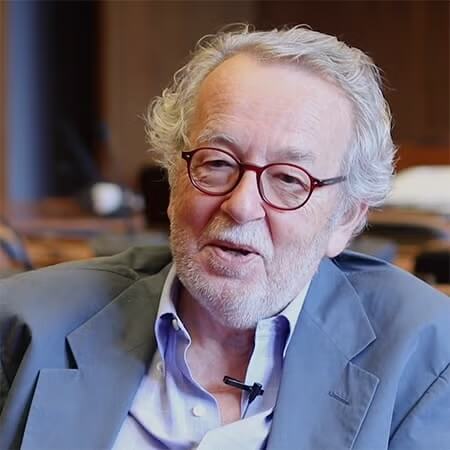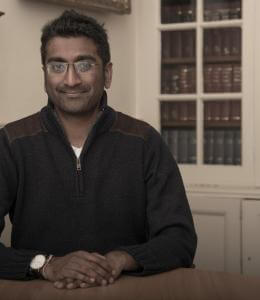The Politics of Covid Apps
https://doi.org/10.71609/iheid-pce3-0284Mobile phones and the digital networks to which the smart ones connect are central to most aspects of contemporary life. They have long since ceased to be a virtual outside “Second Life” that we move in and out of at will. Instead, our “extended lives” now encompass the online. This is true also of political life. Political communication has moved online. So has governance. Who has not debated politics on social media, found information there, or filled out online forms? This extension of politics and governance to encompass the online has placed work with digital technologies at its core. Apps have not merely been a tool for politics, they have shifted the who, where, how and what of politics. Working with technology is part of doing politics and governing in the contemporary world. The Covid-19 crisis is no exception. There is, therefore, nothing surprising about the central role technology has played in the responses to it. However, if – or rather precisely because – technology is an unsurprising part of Covid-19 politics, it is important to ask what kind of politics it is. Here, I discuss one technology only: the Covid app.
MANY COUNTRIES ARE DEVELOPING A COVID APP OF THEIR OWN
Covid apps in the plural. There is an avalanche of them according to the MIT Technology Review. The MIT MediaLab has set up a database covering some. There is also an informative Wikipedia entry on the topic. The apps they include vary enormously in all respects. Their developers range from small groups of coders to the powerful teams of Google and Apple, or national research consortia such as the joint ETH and EPFL project. Some apps – such as the Singaporean TraceTogether app – are freely available for download. Other are strictly guarded national secrets. The apps usually do a combination of contact tracing and tracking but sometimes also measure health indicators to map and identify likely contagion. All of this can be (and is) done in different ways. Some apps work well when it comes to preventing Covid-19 (as the Singaporean, South Korean or Taiwanese experiences show). Others do not. It is a characteristically internet-like terrain we are moving in: fragmented, unstable and rapidly changing. We could easily lose ourselves wandering this territory. Back on track: what are the Covid apps doing politically?
One thing they are obviously doing is challenging the territorially-based politics of states. Unruly territory, partly outside the jurisdiction of sovereign states, is something that has not existed (formally speaking) in the international system since the scramble for Africa and the Berlin Conference. That was 1884–5. Not surprisingly, therefore, states are not taking the emergence of the Covid app territory lightly. They are clamouring to impose their order on it. Almost every country — Argentina, Bangladesh, Switzerland — is developing and rolling out its “own” Covid app. National Covid apps are de mise.National COVID apps are “de mise” Even the EU has given up on finding a common solution for its members. It is now advocating “Digital Sovereignty” and “supporting member-state initiatives” with a “toolbox for mobile applications” and “interoperability guidelines”. Not so long ago, digital sovereignty was a Chinese, Iranian or Russian ploy to crack down on the free internet. Now the Covid apps are bringing state and public authority back in with a vengeance.
MORE APPS MEAN MORE OPPORTUNITIES FOR SURVEILLANCE
Secondly, the proliferation of apps calls forth the spectre of pervasive surveillance. Violation of privacy and protection of personal data are the main concerns voiced but dismantling fundamental human rights and democratic process figures prominently among the risks being debated as well. A rapidly expanding range of technofixes has therefore appeared. These include protocols developed to make the Apps more transparent, more difficult to manipulate or easier to govern and control, such as the DP3T, the Whisper Tracing Protocol, Temporary Contact Numbers and SafePaths. In addition to these protocols, those in charge of the technology vow not to misuse or abuse it. Google and Apple have published a plan pledging to remove information as well as tracking and tracing features when they are no longer needed. Many governments have also acted to reassure citizens that the apps are harmless and beneficial to the public good, that they are developing and following best practices and regulations. However, the spectre refuses to go away. Amnesty International and 100 other organisations have issued a call for limits to surveillance as well as a range of principles on how to achieve this. The American Civil Liberties Union, the Chaos Computer Club (Europe’s largest association of hackers), Reporters without Borders and Human Rights Watch have done similar things. It is difficult to find a human rights or democracy advocacy organisation of any sort that has not voiced similar concerns. They are all stating the glaringly obvious, and obviously important, reason the spectre so stubbornly sticks around: intrusive technologies that know all about us can be turned against us.Intrusive technologies that know all about us can be turned against us They can be used to check on us, on our movements, connections, doings and opinions. They can also be used to intimidate, manipulate and control. Ironically, the national apps introduced to assuage these concerns feed into them. Switzerland, for example, decided to withdraw from the EU initiative on contact tracing and develop its own Swiss app. That app now calls forth the spectre of pervasive surveillance.
COVID APPS WILL HAVE A LIFE AFTER THE CRISIS
The Covid apps are, thirdly, doing their own politics. They have their own political lives and loves. Apps are not fixed, immutable entities. They morph and develop. The technologies that went into their making and the knowledge acquired in the process can be transferred and used elsewhere for other purposes. So can the institutional and regulatory initiatives relating to the apps. There is good reason to think that this not only can but also will happen. Companies, engineers, civil servants and rights activists will not just unlearn or undo everything connected to the apps. Why should they? Even if they wanted to, how could they? They will draw on these apps and transform them for new projects and processes. Thus, Covid apps will live on in our societal infrastructures. They have political lives. They also have political loves. If statistics are anything to go by, in most countries a majority of the population is happy to download and use the relevant Covid apps even when it is voluntary. Italians are enthusiastic enough to massively download an app that is not yet functional. Some countries such as South Korea give people no choice. Either way, the Covid apps are moving into our lives. As they do, we will get even more used to tracing, tracking, measuring, recording and reporting. Many people used fitness apps and tracking devices well before Covid. So perhaps we will just become more used to others doing so? Reactions to Covid apps will vary as much as they do to Fitbit watches. Some will resist and reject the apps. Others will wholeheartedly embrace them. The Covid apps have their loves. “The personal is political.” A feminist slogan worth recalling also when it comes to Covid apps.
To sum up, the Covid apps are recasting the rules of the political game in a lasting manner.The COVID apps are recasting the rules of the political game in a lasting manner By living on in our infrastructures, they are fashioning how we do things. By becoming part of our intimate lives, they are changing how we see ourselves, our options and our interests. The things we know about where this reshaping of the political game is likely to lead are hardly reassuring. We do know that digital technologies tend to be conservative. They reinforce socio-economic, racial and gendered hierarchies. We also know that digital technologies tend to crowd out alternatives. They absorb financial resources that cannot be spent on alternatives. They occupy political imaginaries diverting them from the search for alternatives to technofixes. We know much more about the politics of digital technologies. One thing in particular bears mention: we know that things can be otherwise. While it is safe to assume that Covid apps will tend to be conservative in blocking alternative uses, this is not inevitable. Digital technologies are routinely diverted and transformed to do unexpected things. The space for comments in the Russian Covid app became a site to voice political protests. Moreover, since the Covid apps have lives and loves of their own, they also do things we do not expect and cannot know. Politics is the art of the possible, cultivating this political possibility is of essence. Recognising the politics of Covid apps is the starting point for doing so.
Electronic reference
Leander, Anna. “The Politics of Covid Apps.” Global Challenges, Special Issue no. 1, June 2020. URL: https://globalchallenges.ch/issue/special_1/the-politic-of-covid-apps. DOI: https://doi.org/10.71609/iheid-pce3-0284.The issue has been produced by the Albert Hirschman Centre on Democracy in collaboration with the Graduate Institute’s Research Office. It includes contributions from all of the Institute’s research centres and departments.
Confederation billions to save the Swiss economy | PODCAST with Cédric Tille
Research Office, The Graduate Institute, Geneva
Peut-on comparer la grippe espagnole et le Covid-19? VIDÉO avec Davide Rodogno
Graduate Institute, Geneva et Heidi.news
What hope for the environment? PODCAST with Joëlle Noailly
Research Office, The Graduate Institute, Geneva
PODCAST | The violent consequences of the Covid crisis in India, with Rahul Mehrotra
Research Office, The Graduate Institute, Geneva
New technological tools: a plus for democracy? PODCAST with Jérome Duberry
Research Office, The Graduate Institute, Geneva
Latin America and the Covid-19 crisis | PODCAST with Yanina Welp
Research Office, The Graduate Institute, Geneva
An Indonesian democracy at risk | PODCAST with Jean-Luc Maurer
Research Office, Graduate Institute, Geneva
Democracy in coronavirus times | VIDEO with Shalini Randeria and Ivan Krastev
The Graduate Institute, Geneva (Excerpt of the podcast series “In Conversation With“)





















